Sydney mum watched daughter’s birth in Brazil on Facebook Live
Sydney mum Beatriz Martins never imagined she would miss the birth of her baby girl. But due to COVID-19 restrictions, she wasn’t able to travel to Brazil where a surrogate, her sister-in-law, had her daughter — but she did get to see her enter the world from 13,000km away.
NSW Coronavirus News
Don't miss out on the headlines from NSW Coronavirus News. Followed categories will be added to My News.
- Why Nicole Kidman was allowed to avoid quarantine
- ‘Up to 60 COVID fines’ issued after Sydney house party
Beatriz Caldas Coelho Martins had to watch her daughter being born on Facebook Live from 13,000km away after COVID-19 meant she was unable to travel to Brazil to watch her sister-in-law deliver her surrogate baby.
“This has been the most unpredictable, loving and miraculous experience of my life,” Ms Martins told The Sunday Telegraph.
“It was such an indescribable feeling of love and joy to finally see the love of my life arrive.
“Baby Grace is such a precious and miraculous addition to our family.”
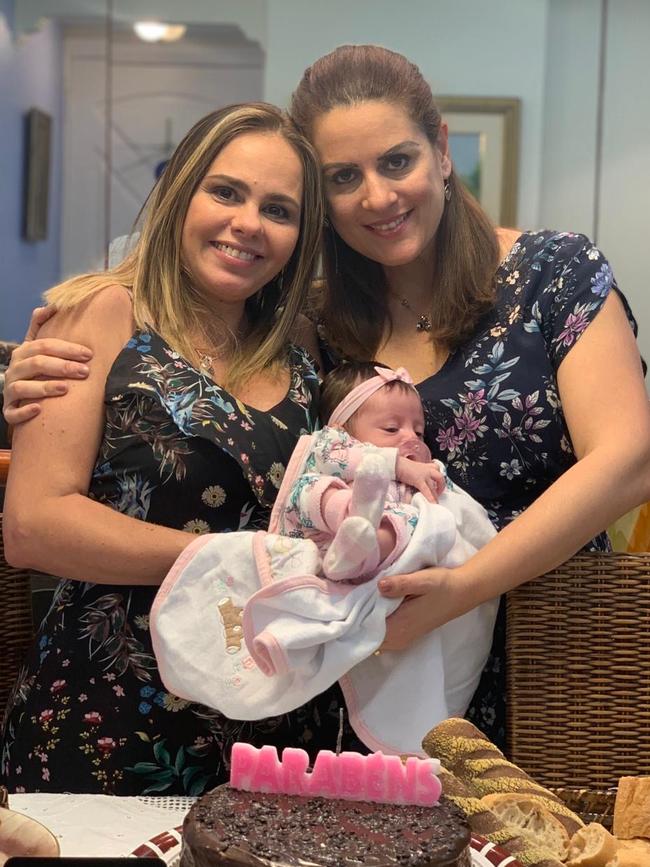
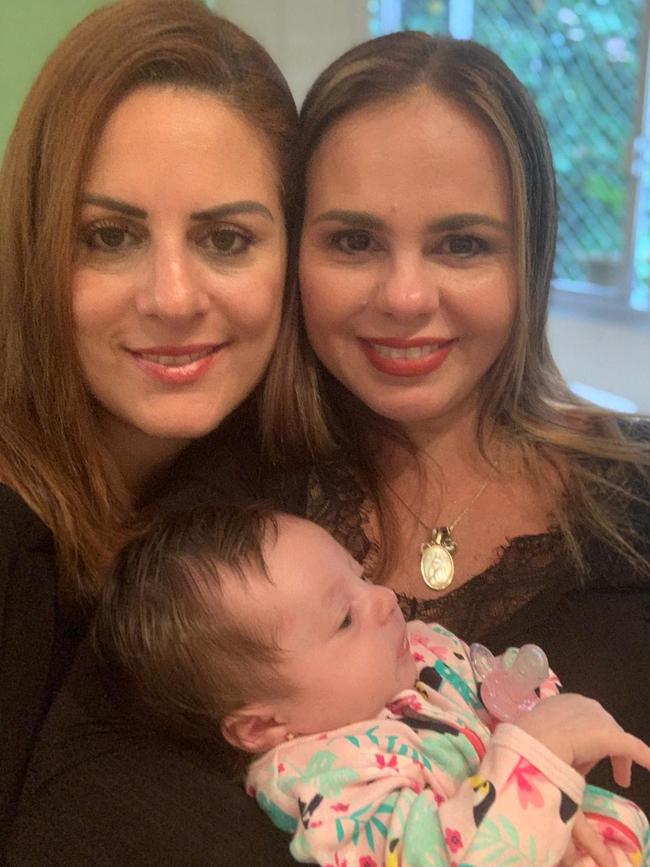
The Northern Beaches mother, 39, always wanted two children but feared a cervical cancer diagnosis in 2018, which resulted in a hysterectomy, had wrecked that dream.
Desperate to give her five-year-old son Guilly a sibling, Ms Martins underwent IVF and managed to retrieve one viable embryo, which she froze.
“Having that hysterectomy at age 37 was the most emotional painful experience I had in my whole life,” Ms Martins said.
“I had an embryo but didn’t have an uterus anymore.”
MORE FROM BRIANA DOMJEN:
Socialite Steel surfaces for secret frock drop
Michael Clarke: ‘My life hasn’t been perfect’
Karl Stefanovic’s team call in a new publicist
Luckily her sister-in-law Christiane Teixeira Vasconcellos, 45 offered to carry the baby.
“Chris knew my pain,” Martins said.
“She offered to carry my baby when my treatment finished.”
Ms Vasconcellos said: “It was then, that my husband and I had decided that I was going to carry this baby for Bea.”
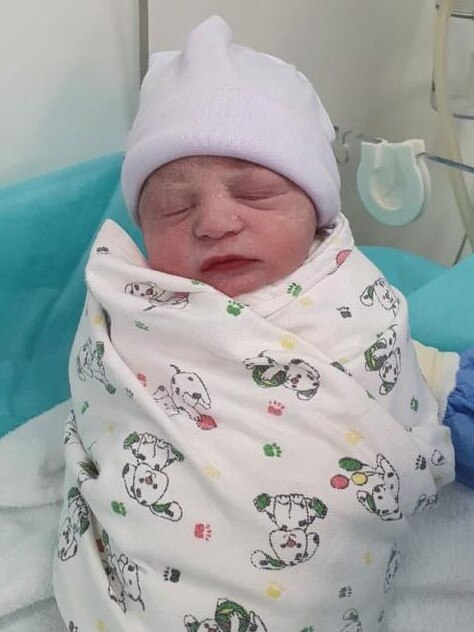
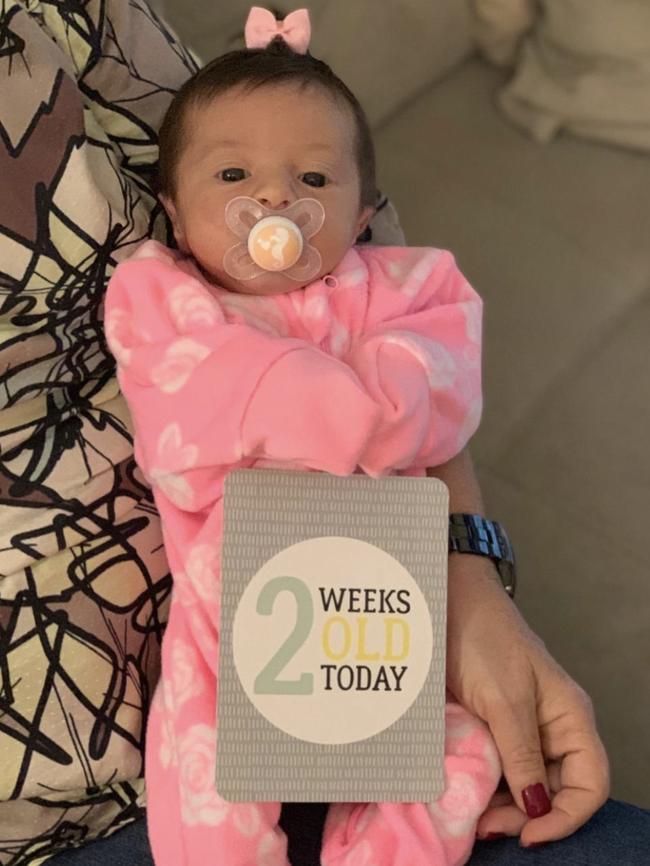
Initially the plan was to bring Ms Vasconcellos, a paediatric nurse from Rio de Janeiro, to Australia to implant the embryo. However they were told they were able to send it via a long-haul commercial flight to Brazil.
It had just a predicted 20 per cent success rate.
“But the embryo arrived safe in Brazil and was transferred to her uterus successfully,” Ms Martins said.
The pair communicated via text message, FaceTime, WhatsApp and Zoom as the pregnancy progressed.
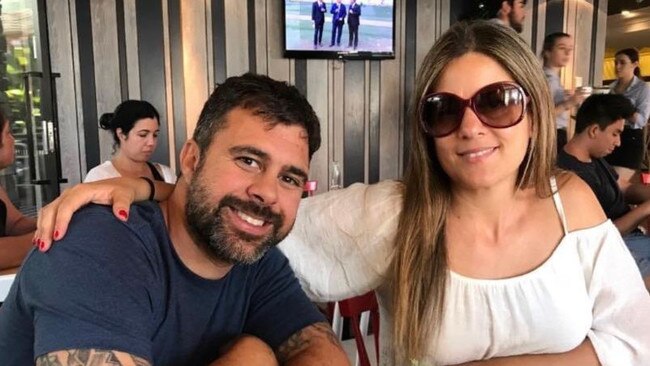
Ms Martins planned to fly to Brazil six weeks ahead of her daughter’s arrival but COVID-19 put paid to that.
Instead Ms Martins and her husband Raphael Teizeira watched Grace’s arrival via Facebook Live on June 12 and travelled to Brazil to meet her daughter 10 days later.
“It was the most odd but incredible experience ever. It was surreal,” she said.
While Ms Martins is eternally grateful to her sister-in-law, it is Ms Vasconcellos who feels lucky.
“I feel blessed to have carried my niece and goddaughter in my womb,” she said.
“We have always been very close by heart and also by technology. It was very exciting and gratifying to be able to deliver her beloved and miraculous daughter into her arms.”

